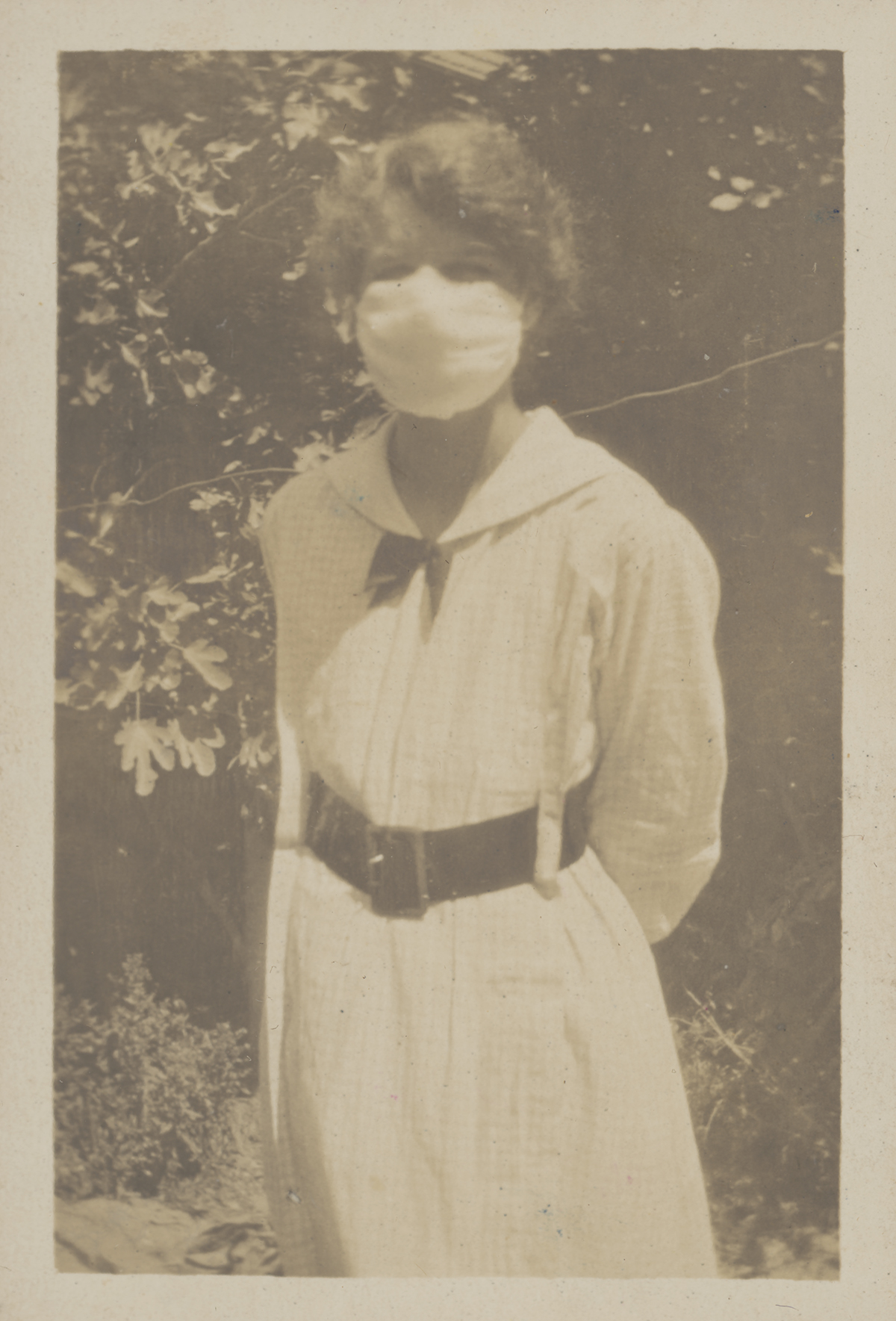Amongst the many voices that make up the National Library of Australia’s Oral History and Folklore collection are people who remember extraordinary events of 101 years ago – a 1919 Influenza pandemic which tested the world’s resilience and courage.
At a time when we again contend with a global pandemic, it is incredible to hear first-hand stories of the 1919 influenza pandemic from the voices of those who it experienced it first-hand.
 M.P.B.C. wearing a flu mask during the flu epidemic, February, 1919, nla.cat-vn3919207
M.P.B.C. wearing a flu mask during the flu epidemic, February, 1919, nla.cat-vn3919207
Barbara Cullen remembers, “we had to go around in these terrible masks. I don’t know if it did any good or not because if the masks weren’t washed properly they could have been harbouring as many germs as the air outside.” She continues,
“My husband told me that when he came back from the war just wanting to get ashore and there were all these people walking about with these masks on and he didn’t know what was happening.”
Listen to Barbara Cullen's interview
Thomas McKernan remembers, “the Spanish Flu took many lives in Australia. It was a most virulent disease.” He remembers, going to Church on a Sunday, “we all wore masks. It was a mysterious event, walking through streets of South Melbourne wearing a white mask and approaching Church and seeing everyone else similarly disguised.” He also says that the use of soap was common, though perhaps not in the way we might expect. He says “as a precaution” it was usual for most people to take a sniff of the suds of the well-known and strong brand of soap, LifeBuoy, in an attempt to clean the nose and “thereby defying the Germs of the Spanish Flu to take up residence.”
Listen to Thomas McKernan's interview
Jean Arnot remembers being at Fort Street High School during the 1919 influenza epidemic where all the students had to wear masks. She says, “We had to wear masks…with elastic around our ears.”
“I suppose it would have been awful having to teach children arithmetic with these masks on but we wore them, oh yes, they were very strict. It was a terrible time, that influenza epidemic.”
Listen to Jean Arnot's interview
Sadly, Phyllis Matthews lost her mother to the epidemic. In a very moving and emotional interview, she describes how “there were so many ill…and not the doctors and nurses to look after them.”
Listen to Phyllis Matthew's interview
 'SOS Card', in Health Services: Ephemera Material Collected by the National Library of Australia, nla.cat-vn1074118
'SOS Card', in Health Services: Ephemera Material Collected by the National Library of Australia, nla.cat-vn1074118
The Influenza pandemic of 1919 was permanently seared in the memories of Australians who lived through this time. Yet amongst accounts of loss and sadness, interviewees also recall the efforts of health professionals, the way that Australian towns and families did their best to help those who were sick and the efforts of health professionals to provide care where it was needed. Interviewees in the National Library’s oral history collection also describe the way their lives unfolded in the decades after this period and ways they found happiness. Their resilience and strength is truly inspiring.